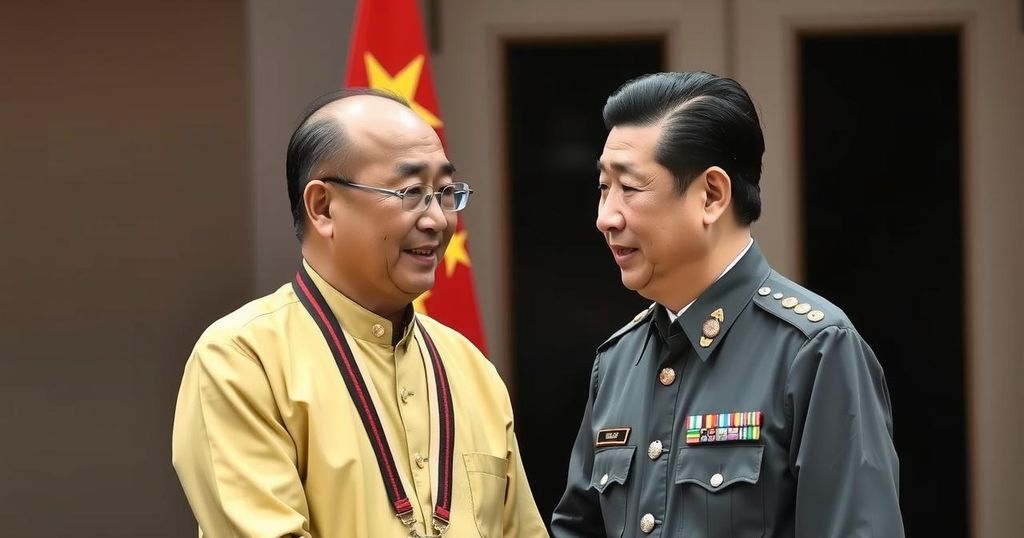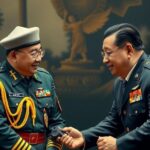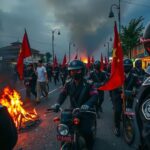Myanmar Junta Leader Engages in Peace Talks with China Amid Ongoing Civil War
Min Aung Hlaing, Myanmar’s junta leader, visited China for talks with Premier Li Qiang about the country’s civil war. He expressed a willingness for peace, urging armed groups to engage. China’s concerns focus on stability due to its interests in Myanmar, aggravated by ongoing rebel offensives against the junta since the 2021 coup.
Min Aung Hlaing, the leader of Myanmar’s military junta, embarked on his inaugural official visit to China since his 2021 coup, where discussions with Premier Li Qiang centered around the ongoing civil conflict in Myanmar. During their meeting in Kunming, Min Aung Hlaing asserted the military’s willingness to pursue peace, contingent upon the engagement of armed groups in meaningful dialogue. He emphasized, “The door of peace is always open if they genuinely want peace.” Min Aung Hlaing’s remarks highlight the military’s stance towards the insurgents while also urging them to prioritize the nation’s stability over their individual agendas.
Furthermore, the situation in Myanmar remains precarious, with various armed factions launching significant offensives against the junta and gaining control over essential territories, particularly along the Chinese border. This ongoing conflict has erupted since the military ousted the democratically elected government of Aung San Suu Kyi, plunging the nation into chaos.
China’s involvement and concerns are notable, given its historical role as a significant arms supplier and political ally to the junta. Amidst the turmoil, Premier Li emphasized the importance of safeguarding Chinese nationals and investments in Myanmar. Although Li did not overtly endorse the junta’s military approach to governance, he expressed China’s support for Myanmar’s efforts towards political reconciliation. Analysts noted that China’s apprehension regarding the potential collapse of the junta coincides with its wariness of Western influence among pro-democracy factions opposing military rule.
Myanmar, integral to China’s Belt and Road Initiative, serves as a crucial route for infrastructure projects that connect China’s southwestern region to the Indian Ocean, further illustrating the geopolitical stakes in the ongoing conflict.
The civil war in Myanmar has escalated since the military coup in February 2021, leading to a significant pushback from various armed opposition groups. This unrest has been characterized by violent confrontations between the military and insurgent factions, who have sought to reclaim control and restore democratic governance. The situation has drawn the attention of regional powers, particularly China, which holds vested interests in Myanmar’s stability due to economic ties and strategic initiatives like the Belt and Road Initiative, designed to facilitate trade and infrastructure development across Asia.
In summation, Min Aung Hlaing’s discussions with Premier Li Qiang underscore the complexities of the civil war in Myanmar and China’s vested interests in the outcome. As both leaders conveyed their positions, the junta’s readiness for peace was juxtaposed with ongoing military operations against insurgents. The international implications of Myanmar’s internal strife have led to a cautious stance from China, balancing support for the junta while emphasizing the necessity for political reconciliation to maintain stability in the region.
Original Source: www.firstpost.com








Post Comment